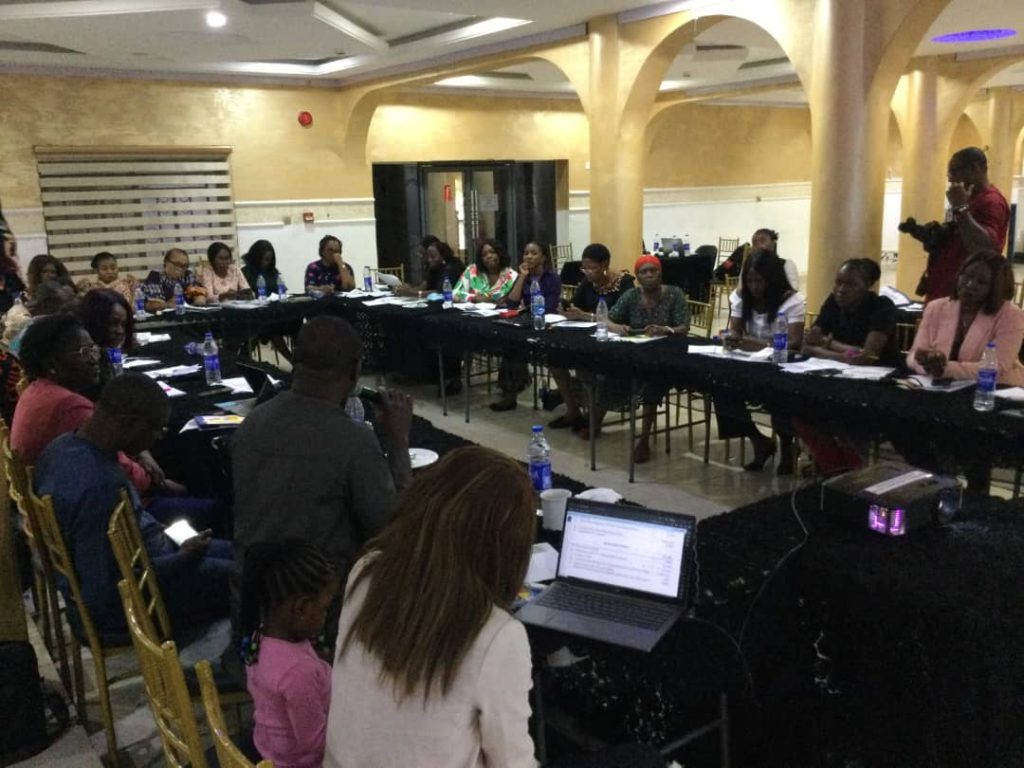Lawrence Nwimo, Awka
Civil Society Organisations (CSOs) and all other non-profits groups in Anambra State and beyond have been urged to prioritize compliance with existing extant regulations to enhance their organisation’s credibility and effectiveness.
The call was made by Global Rights, an international organisation that advocates for sustainable justice, during its regulatory compliance training for CSOs in Awka, Anambra State capital.
The two-day workshop themed: “Strengthening a Community of Practice to Improve CSO Regulatory Environment In Nigeria,” was carried out with support from the European Union (EU).
Speaking at the event, Programme Manager, Global Rights, Edosa Oviawe, said the training was in response to the need for CSOs and other non-profit groups to operate within the confines of the law.
According to him, adherence to extant laws not only enhances the legitimacy of CSOs but also ensures that their activities are carried out in a transparent and accountable manner.
Oviawe highlighted the decreasing credibility of many CSOs in the country, not due to lack of effort, but rather poor compliance with existing regulations. He also pointed out that many CSOs register with the Corporate Affairs Commission (CAC) and then neglect their obligations, leading to potential penalties.
“We have understood that a lot of them are losing credibility not because they are not doing a good job but because the level of their regulatory compliance to extant regulation is very low.
“Many of them don’t even know what is required of them after registration. A lot of them started their work even before formal registration. They just went to the CAC register and left without knowing that the registration comes with some obligations.
“We are here to train them to understand what is required of them on post-registration requirements to prevent consequences.
“This intervention is being carried out in seven states in the Southern part of Nigeria. Two from the South-East, another two from the South-South and three from the South-West.
“Apart from the training, we work to see how CSOs in the states are able to provide some support for emerging voices in the sector and to ensure that all the good work done is not discredited because of the lack of awareness or understanding of what is expected of them,” he said.
During a presentation on “Corporate and Allied Matters,” Adekunle Adedeji, a Professor of Law and Senior Advocate of Nigeria, emphasised the importance of compliance with various legal regulations affecting CSOs.
He stressed the need for organisations to file annual returns promptly and appoint a Compliance Officer to ensure timely compliance and avoid fines.
Adedeji addressed concerns about regulations hindering CSO operations, noting that compliance is necessary for all organisations, not just NGOs. He suggested that the government provide incentives to encourage NGOs to continue their valuable work, similar to those available for Small and Medium Enterprises.
A tax expert, Princess Obare Musa, guided participants through the process of Compliance to prevent penalties. She emphasised the importance of having a Tax Identification Number as the first step, followed by registration on the tax Promax site to begin filing.
While Musa stressed that complying with regulations is more cost-effective than facing fines for non-compliance, she advised organisations to stay updated by following FIRS online and appointing a tax compliance officer to handle filings, particularly annual returns.
Representative of the Federal Inland Revenue Service (FIRS), Shawulu Apuru Afiniki, reminded participants section 55 of the company income tax which she said provides that every company registered with the tax office should file returns at the end of every business year.
She hinted that the cost of non-compliance far outweighs compliance, a reason they must operate within the confines of the law.
“For instance, where an NGO is supposed to pay VAT on the services, the penalty is that they will pay N25,000 for the first month and N5,000 for the subsequent months.
“Some people have confessed that they have not filed for five years, if you calculate their penalties, sometimes the company might end up closing for failure to cope with penalties,” Afiniki said.
Mrs Oyeka Amara Kate of the Anambra Internal Revenue Service, AIRS, advised participants to familiarise themselves with the guidelines to know what to do and when to do them. She also stated that compliance does not expose them to any disadvantage, but rather gives them visibility, and enhances their organisation’s profiles.
Chairman of Joint National Association of Persons with Disabilities (JONAPWD), Anambra State Charter, Comrade Ugochukwu Okeke, who was a participant, said the capacity building workshop was an eye opener.
He added that the knowledge gained will be crucial in the management of his organisation, promising to cascade the lessons learnt to his colleagues.

